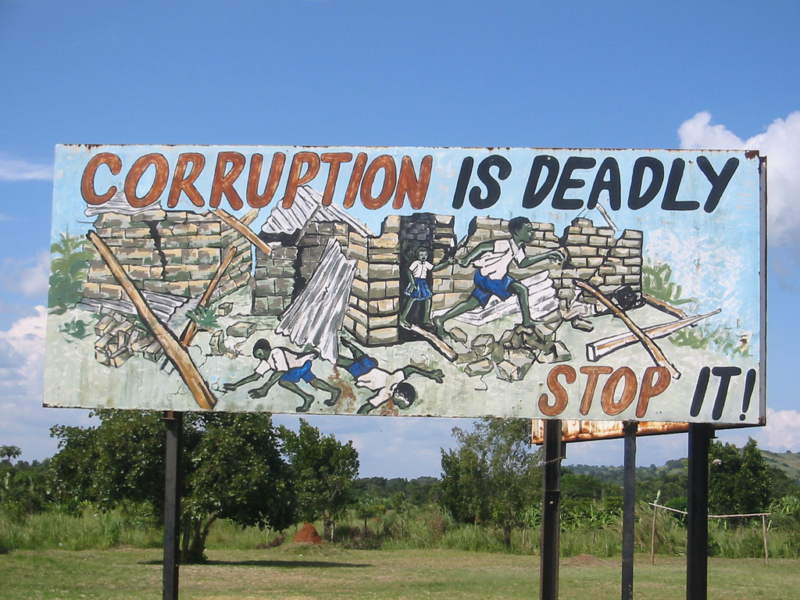In the lead up to International Anti-Corruption Day on the 9th of December 40 NGOs stand alongside anti-corruption activists to call on the EU to deliver strong transparency measures at its upcoming Anti-Money Laundering Directive (AMLD) negotiations on Wednesday, 13th December 2017.
Evidence from the World Bank suggests that 70% of large-scale corruption cases involve anonymous companies and trusts. These secretive structures help conceal the identities of corrupt individuals and businesses involved in illegal activities, resulting in the loss of billions from the world’s poorest countries.
Major leaks – including the Panama Papers and Russian and Azerbaijani Laundromats – have shown the current EU anti-money laundering regime does not adequately prevent corrupt money from flowing through Europe’s financial centres. Despite growing public concern about corruption and other evasive activities, most recently following the Paradise Papers, EU member states have so far failed to meaningfully address anonymous EU companies and trusts.
We, the below signatories, call on European leaders to agree on robust new anti-money laundering legislation to tackle illicit financial flows through public disclosure of beneficial ownership of companies and trusts. The EU needs to show its commitment as a global leader in the fight against money laundering and corruption.
Global Witness
Transparency International
EG Justice
The ONE Campaign
Global Integrity
Eurodad
Transparency International France
Oxfam
Accountability Lab
Follow Taxes, Nigeria, West Africa and Africa
CENADEP RDC
Enough is Enough, Nigeria
Women and Children Hope Center, DRC
Foundation For Environmental Rights,Advocacy & Development (FENRAD NIGERIA)
Media Rights Agenda (MRA)
Foundation for the Conservation of the Earth (FOCONE) Nigeria
PWYP, UK
Justice, Development and Peace/Caritas Initiative (JDPC), Enugu Diocese
Excellent World Foundation, Nigeria
L’Association Guinéenne pour la Transparence (AGT)
Pro Ethical Trade Finland
Policy alert (grassroot people empowerment foundation)
Development Diaries Ltd/GTE
OpenCorporates, UK
Réseau Foi & Justice Afrique Europe
Partners for community empowerment (PACE)
Ekvilib Institute, Slovenia
Transparency International Slovenia
EnaBanda, Slovenia
The Young Entrepreneurs Society, Nigeria
Centre national de coopération au développement (CNCD-11.11.11), Belgium
SLOGA Slovenian Global Action
Institute of Global Responsibility, Poland
Plateforme Paradis Fiscaux et Judiciaires, France
CCFD-Terre Solidaire, France
PWYP Cameroon
Focus Association for Sustainable Development, Slovenia
Open Knowledge Foundation Deutschland
World Economy, Ecology & Development – WEED
Weltwirtschaft, Ökologie & Entwicklung – WEED e.V.
Transparência e Integridade, Portugal




